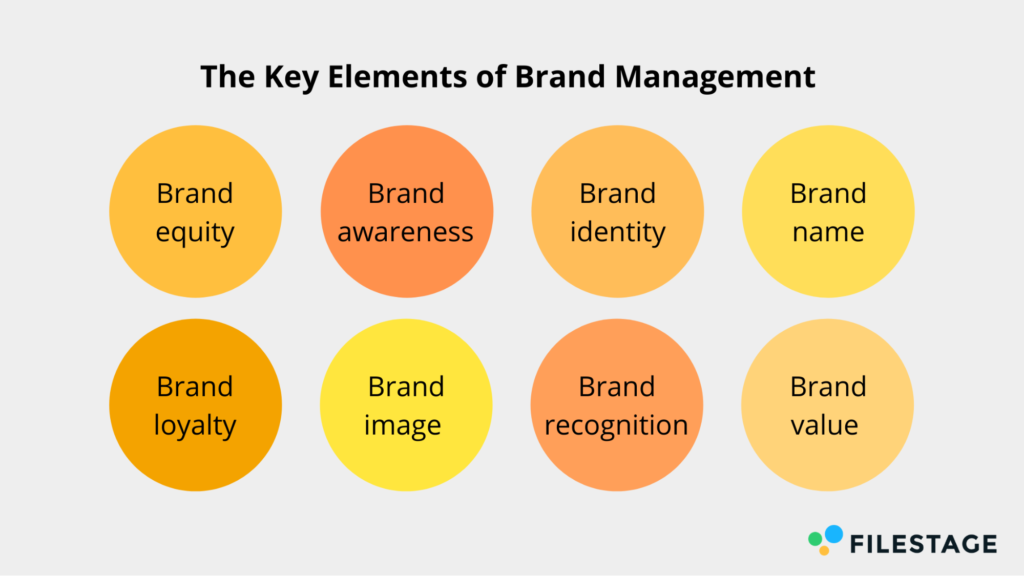Top 7 Strategies for Successful Brand Management
Table of Contents

- jaro education
- 16, June 2024
- 10:00 am
Overview
Whether it’s a big or small store, every business owner looks up successful brand management strategies to make their advertising more effective. So, understanding brand management is important to set yourself apart from the competition. From encouraging customer loyalty to improving brand equity, brand management plays a pivotal role in today’s market. In this blog, we will discuss ‘what is brand management?’ and its importance. Also, we will explore the top 7 strategies for creating an effective brand management strategy so that you can gain the benefits of a strong connection between the brand and customers.
What is Brand Management?
Brand management is a business process that involves improving brand awareness, increasing revenue and promising the success of the business. Brand management summarises multiple marketing strategies and techniques which can support you to uplift your brand position. Basically, brand management is about making a promise to its customers and delivering the same. It is an effective strategy that helps you improve your brand’s reputation to encourage customer trustworthiness.
Brand management also helps manage your brand’s insights in the marketplace. You should make sure that your brand identification and values are conveyed to your customers clearly. Furthermore, brand management is all about creating and managing a brand that resonates with customers and drives business success.
Types of Brand Management Strategies

There are different types of brand management strategies. And, which will be the perfect for your brand will depend on the product and your creativity. So, we have mentioned below the three types of brand management strategies.
- Product Branding: Product branding is a process that creates a brand around a single product’s identity. Basically, this strategy focuses on making the product recognisable enough so that the product turns into the brand itself. The product’s identity can be made through branding essentials, such as colour, logo design and packaging.
- Attitude Branding: Attitude branding is a type of marketing strategy that represents the feeling, lifestyle or identity that customers can attach to. Instead of focusing on the product benefits, it aims to sell the shopping experience with your brand. One of the best examples of attitude branding is ‘Nike’. Nike was one of the first companies that came with the famous slogan “Just Do It”. This slogan doesn’t mean a reference to the product, but rather, it focuses on promoting a lifestyle which resonates with their consumers.
- Brand Extension: Brand extension is a marketing strategy that is used to introduce a new product or line to a brand. Successful brand extension can help raise the brand, gain new potential customers and revive a fatigued business. However, it is a challenging brand management strategy as a failed brand extension can cause serious damage to your reputation in the market.
Why is the Strategic Brand Management Process Important?
In today’s competitive business environment, a successful strategic brand management process is important for so many reasons. Firstly, effective brand management helps build a strong brand that grabs the customer’s attention and leaves a long-lasting impression. Secondly, it helps foster a loyal customer base which leads to the success of the brand as customers have a unique sensitive connection with the brand.
Besides, brand management can also create strong brand equity which refers to a company’s added value generated from a product or service. High-equity brands have several benefits, including the ability to charge premium prices for their products and large market share. Additionally, successful brand management helps in drawing new customers and inspiring them to connect with the brand.
So, in the modern business environment, an effective strategic brand management process is a must-have for a company’s long-term success.
Top 7 Elements for Strategic Brand Management Process

*waldenu.edu
Define Your Brand
Defining your brand is the first step in the strategic brand management process. This includes understanding what type of your brand is, its essential values and its goals. So, it’s crucial to understand every facet of your brand, like what does it stand for? What makes it exceptional? Who’s your target audience? Thus, the more you know your brand, the better you manage it.
Develop a USP (Unique Selling Proposition)
To build a strong brand, it is vital to stay ahead of your competitors. A USP is the unique advantage that makes your product and service unique from your competitors. This means if you fail to be prominent, then all your time and money invested in making your brand go in vain and you will get little to no ROI (return on investment). Hence developing a USP for your brand is important to stand out from the crowd.
Understand the Target Audience
Next, it is important to know your target audience. Therefore, you must focus on what your audience desires, requirements and expectations are. If you want your customers to have an excellent experience, then you must understand their needs and provide solutions better than your competitors.
You can conduct surveys and questionnaires to understand your customers’ doubts related to your product or service. Also, a content marketing campaign can help you eliminate common doubts. Developing a good relationship with your customers can build a strong loyal customer base.
Create a Market Strategy
A market strategy is a type of strategy that simplifies the buying and selling of its products or services. A marketing strategy finds out how to reach potential consumers and convert them into customers. It comprises the company’s value proposition, significant brand messaging, information on target audience demographics and other superior elements.
Normally, the base of your marketing begins with the name, logo, colour and design of the brand. Besides the graphic part, language and expression are also important. You should build a comprehensive brand image to present it across all platforms. Every part of a market strategy will expressively impact what customers think or feel about your brand.
Over and above, preferring social media marketing in your strategic brand management process helps you reach a broader audience. Social media is one of the most important platforms if you want to focus on a younger target audience demographic.
Stay Consistent
It is crucial for retail businesses to have strong branding if they are operated at several locations.
For instance, Apple stores around the globe are the same, thus making customers feel relaxed that their experience of purchasing products at any Apple store would be of the same quality. And, Apple stays consistent by ensuring that everything, from product packaging to the customer experience, is similar globally. This applies to consistency across all products and services.
Like Apple, you should ensure that you have strong branding at your different retail locations, enhancing your product packaging, business site and social media accounts. This way, you make the audience identify your brand easily, online and offline.
Monitor Your Brand Awareness and Reputation
Once you introduce your new brand management strategy, you should ensure that you monitor your marketing networks to check the reaction of people to your revived brand. You should keep a note of all positive and negative feedback to make modifications. Probably, you won’t see much increase in brand awareness for a period of time, but once the brand strategy spreads out, you can conduct another survey to understand your customers’ doubts and questions to make the changes.
Analyse the Performance of Your Brand Strategy
Analysing the performance of your brand strategy is one of the most important processes that is generally made to know the status of your brand at certain intervals, like monthly or quarterly. To evaluate with numerical data, there are different KPIs. Some of them are:
- The amount of branded traffic to your store
- The volume of references
- Bounce rate
- Return on marketing investment (ROMI)
Final Thoughts
An effective strategic brand management process is crucial for any business to boost strong relationships with its audience, thus developing a loyal customer base. If you aim to develop your brand management strategy with the implementation of digital tech, social media platforms and marketing creators, then you will see a rise towards the success of your brand. These days, social media plays an essential role in maintaining brand equity by remaining connected to the customers. Also, it helps you manage your brand reputation in the market.
As we discussed the details of brand management strategies, like ‘what is brand management?’, ‘importance of brand management’, ‘the strategic brand management process’ and ‘top 7 elements for successful brand management’, you can create your own branding strategy based on these, as per the requirements of your business.
So, want to make your career in brand management? Then, develop your knowledge and skills by enrolling in the course – Executive Programme in Brand Management by CEP, IIT Delhi. The programme offers a complete learning experience via live online sessions. It is designed to meet industry requirements, focusing on real-world insights. With the combination of theoretical knowledge and hands-on experiences, this programme helps students with the required skills to be experts in the field of brand management. For information, you can visit Jaro Education!
Frequently Asked Questions
To manage your brand successfully, you need a strong strategic brand management process. Some of the important methods are market strategy, consistency, proper branding, advertising, PR, brand website and social media.
For effective brand management, you should know the three important rules, which include innovation, differentiation and communications.
To make a good brand identity, branding necessities include colour, logo, design and packaging. These essentials should be constant across all your marketing products. From your band’s website to social media accounts, a unique visual identity can make your brand stand out from competitors.
Developing a brand strategy for a business is the main role of a brand manager. He/she is responsible for managing a variety of business functions, such as branding, product development, communication mediums, and online and offline promotions. Conducting market research for the company is also one of the main responsibilities of a brand manager.
If you have a strong brand strategy, then you can solve the following problems:
- The improvement of recognition
- The invasion of new clients
- The trustworthiness of current clients
- Stability during crisis
- The ability to charge higher prices for products without the fear of losing customers.












